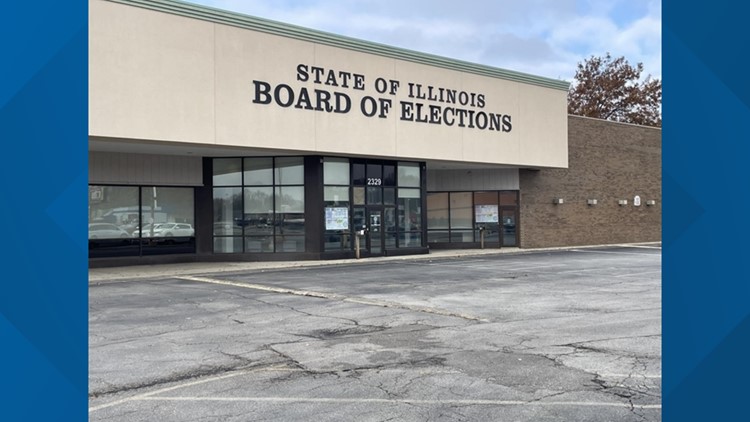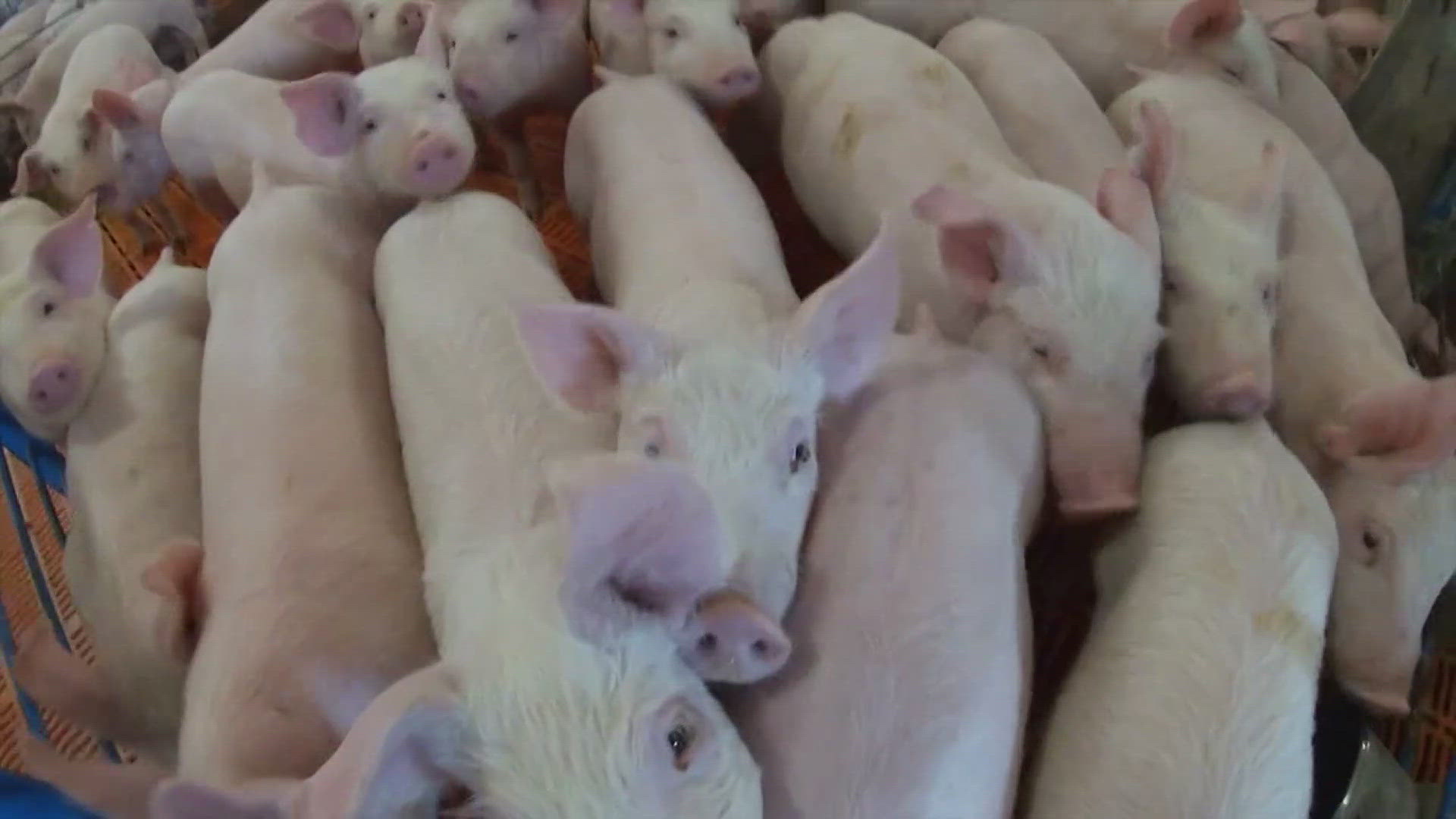SPRINGFIELD, Ill. — Monday morning marks the official beginning of the 2024 election cycle in Illinois, opening up the week-long period when candidates for local, state, congressional and judicial races are required to turn in the signatures they’ve spent the last two months collecting to get on the ballot.
The first day of petition filing has traditionally taken on a party atmosphere, as candidates and staff line up outside the Illinois State Board of Elections office in Springfield, where the line often reaches past the Chuck E. Cheese storefront, roughly 100 yards down from the board’s entrance in the capital city strip mall.
Those who get in line before 8 a.m. are entered into a lottery drawing to be placed atop the ballot for their respective position. The lottery drawing is scheduled for Dec. 13.
Though many candidates line up before filing opens, elections board spokesperson Matt Dietrich said he hasn’t seen any studies that prove being first on a primary ballot actually provides any advantage.
“Primary voters tend to be the most informed voters,” he said. “So these are the voters are most likely to know which candidates are on their primary ballot and they're the voters who are most likely to have already made up their minds before they go into the polling place.”
Still, “political candidates, if they sense that there may be any type of advantage to something, they'll go out of their way,” Dietrich said.
Some candidates also try for another myth of advantage by waiting until the last hour of the last day of the filing period, Dec. 4 from 4 to 5 p.m. This pool of candidates is entered into a lottery to be at the bottom of the list in their respective races.
Candidates can file petitions to be on the ballot from Nov. 27 through Dec. 4 at the elections office for any of the 17 U.S. House of Representatives seats, 141 Illinois General Assembly seats or 77 judicial vacancies.
After filing, the board opens a period for challenges to candidate petitions. Typically, opponents or party operatives will attempt to knock a newcomer off the ballot for signatures that may not have been collected properly, or in some cases are proven to be fraudulent.
The board will certify the primary ballot at its January meeting and the primary election is scheduled for March 19.
This filing day signals a return to normal from the last state election cycle, which was slowed by delays in 2020 U.S. Census data that caused a chain reaction — slowing the process of redistricting in 2021 and changing Illinois’ typical mid-March primary to a June primary last year. Instead of the usual November candidate filing in 2021, the Board of Elections pushed it to March 2022.
Dietrich said it was necessary as candidates needed the new maps — which had been challenged in court — finalized before they could start passing petitions for the new districts they sought to run in.
Election security
Even before petitions are filed, election authorities in Illinois are trying to get ahead of both conspiracy theories and genuine questions about election security and integrity that have continue to circulate and evolve on social media during the past several election cycles.
In late September a number of downstate county clerks hosted a series of coordinated news conferences to send the message that if constituents are concerned about election integrity, they should visit their local county clerk’s office to learn how the process is actually handled from start to finish.
In a Capitol Cast interview this fall, Tazewell County Clerk John Ackerman said that since 2016, county clerks throughout the state of Illinois have seen “unprecedented attention focused on elections.”
“A lot of misinformation [is] being placed out there,” Ackerman said. “Two presidential cycles in a row. Before we got to the third one, if you just keep doing the same thing, you’ll get the same result.”
Ackerman said he tries to tell people, “you know who we are, we’re in the community, our kids go to the same schools, we shop at the same supermarkets.”
On the podcast in September, Dietrich emphasized that the work of running elections is largely decentralized; the Board of Elections only provides administrative support to Illinois' 108 local election authorities.
”They do all of the voter registration, they do all of the voter list maintenance on a daily basis, they recruit the election judges, they rent out the polling places,” he said.
One increased security measure requires that no one except Board of Elections employees and candidates filing their signatures will be allowed in the petition filing room next week.
The 2024 Illinois general primary election is March 19. Registered voters can begin requesting mail-in ballots Dec. 20, according to the Illinois State Board of Elections calendar.
Hannah Meisel contributed.
_____________________________
Capitol News Illinois is a nonprofit, nonpartisan news service covering state government. It is distributed to hundreds of newspapers, radio and TV stations statewide. It is funded primarily by the Illinois Press Foundation and the Robert R. McCormick Foundation, along with major contributions from the Illinois Broadcasters Foundation and Southern Illinois Editorial Association.
Watch more news, weather and sports on News 8's YouTube channel



